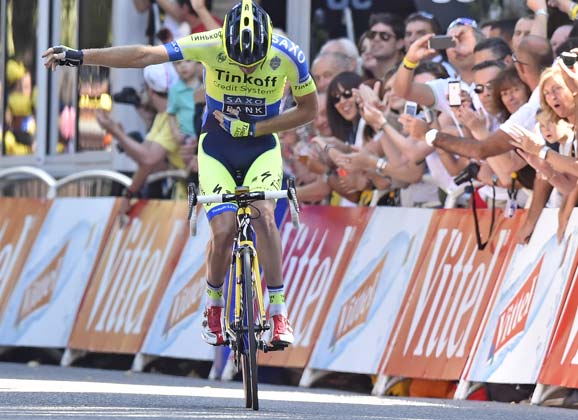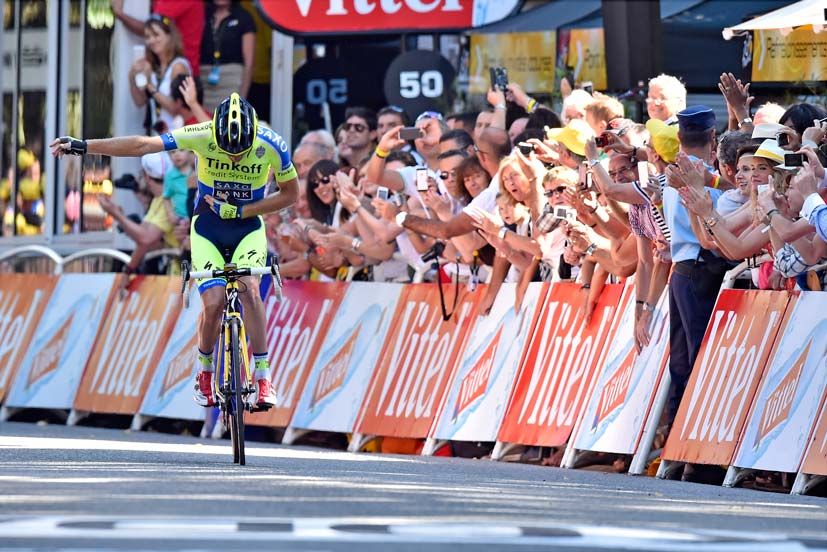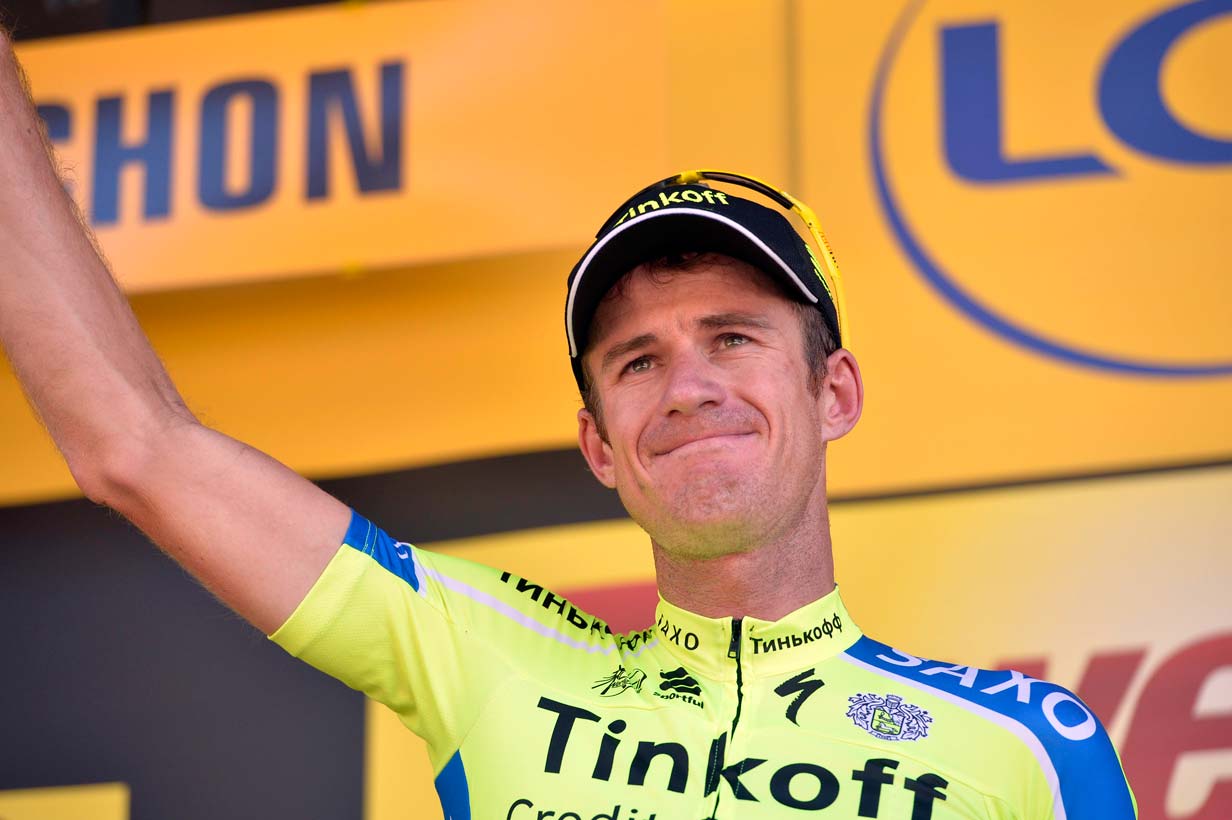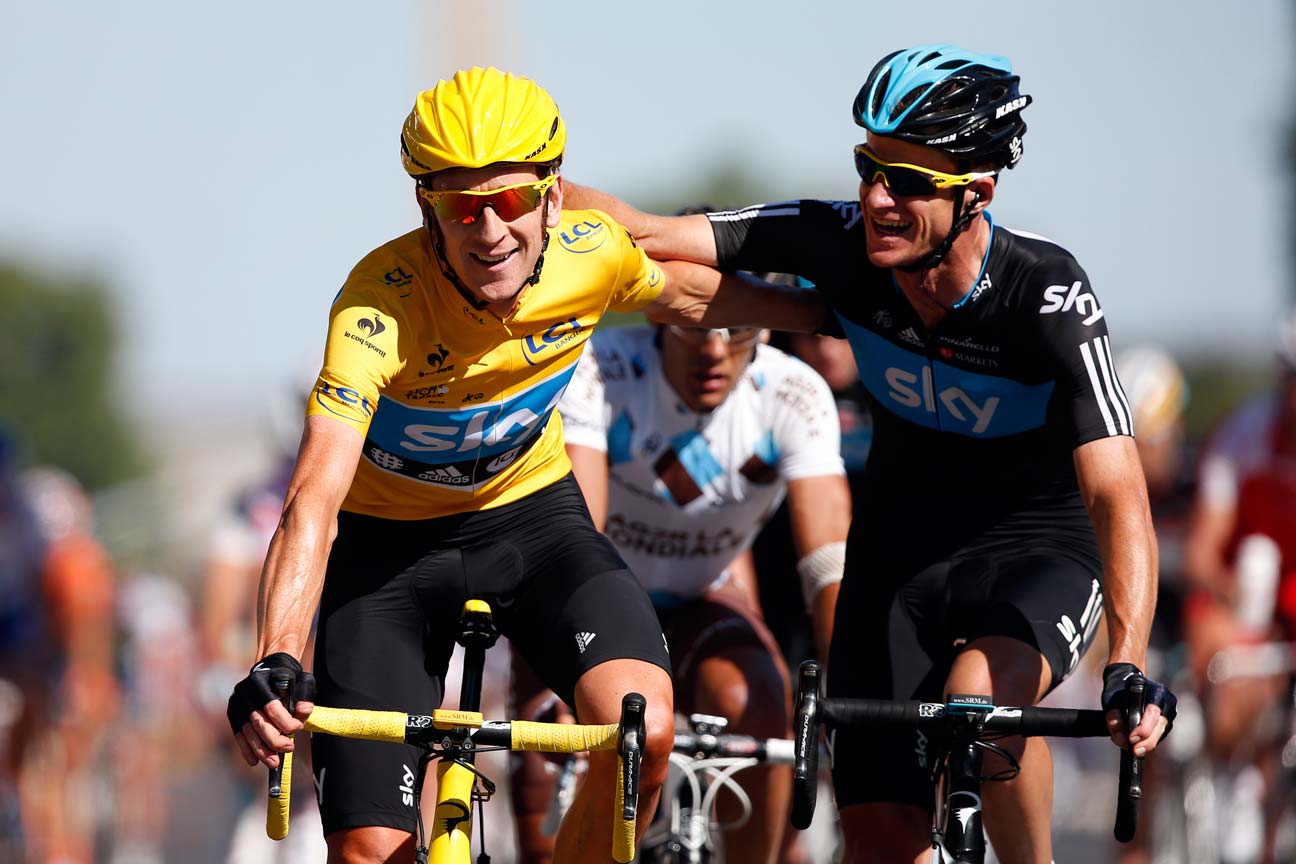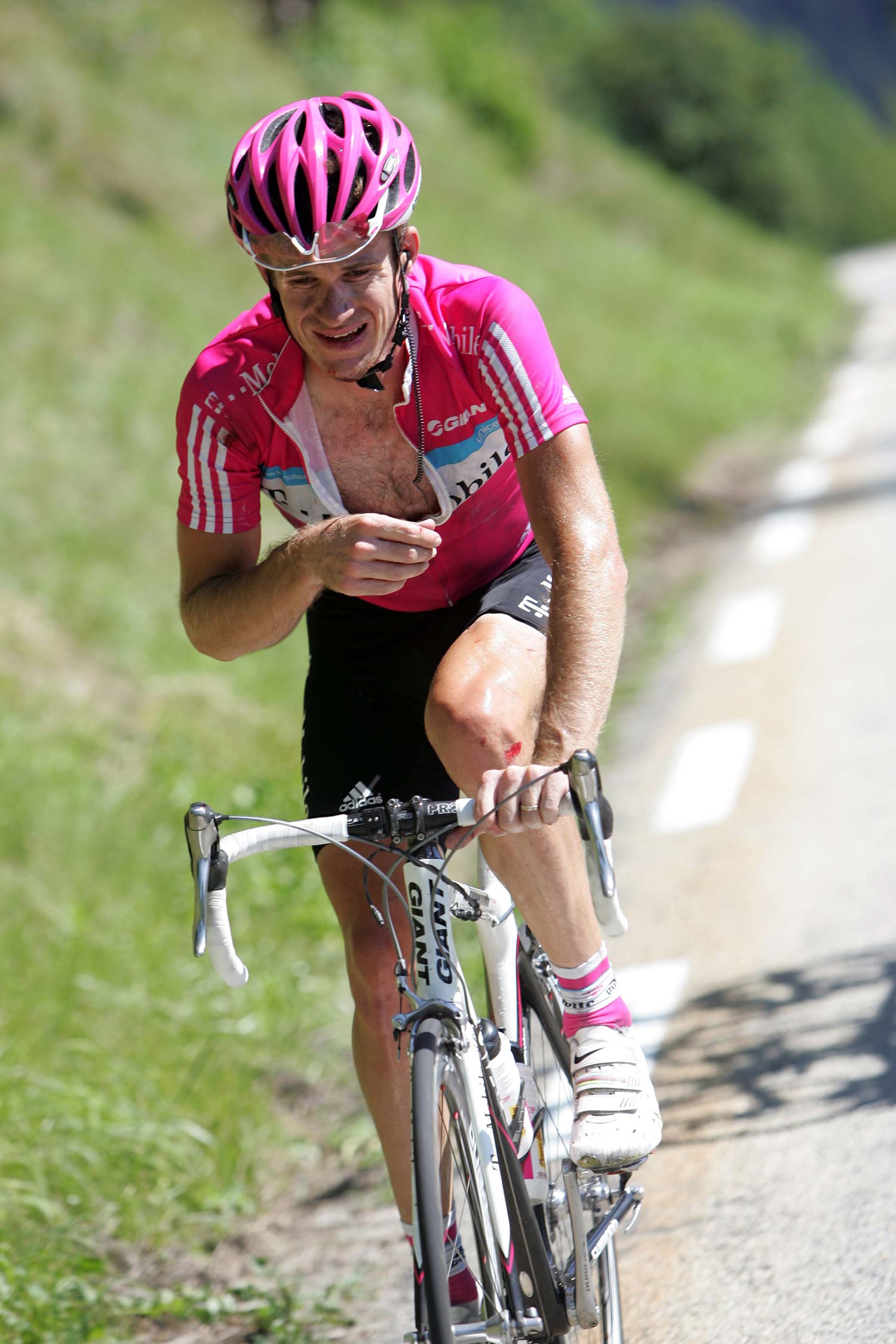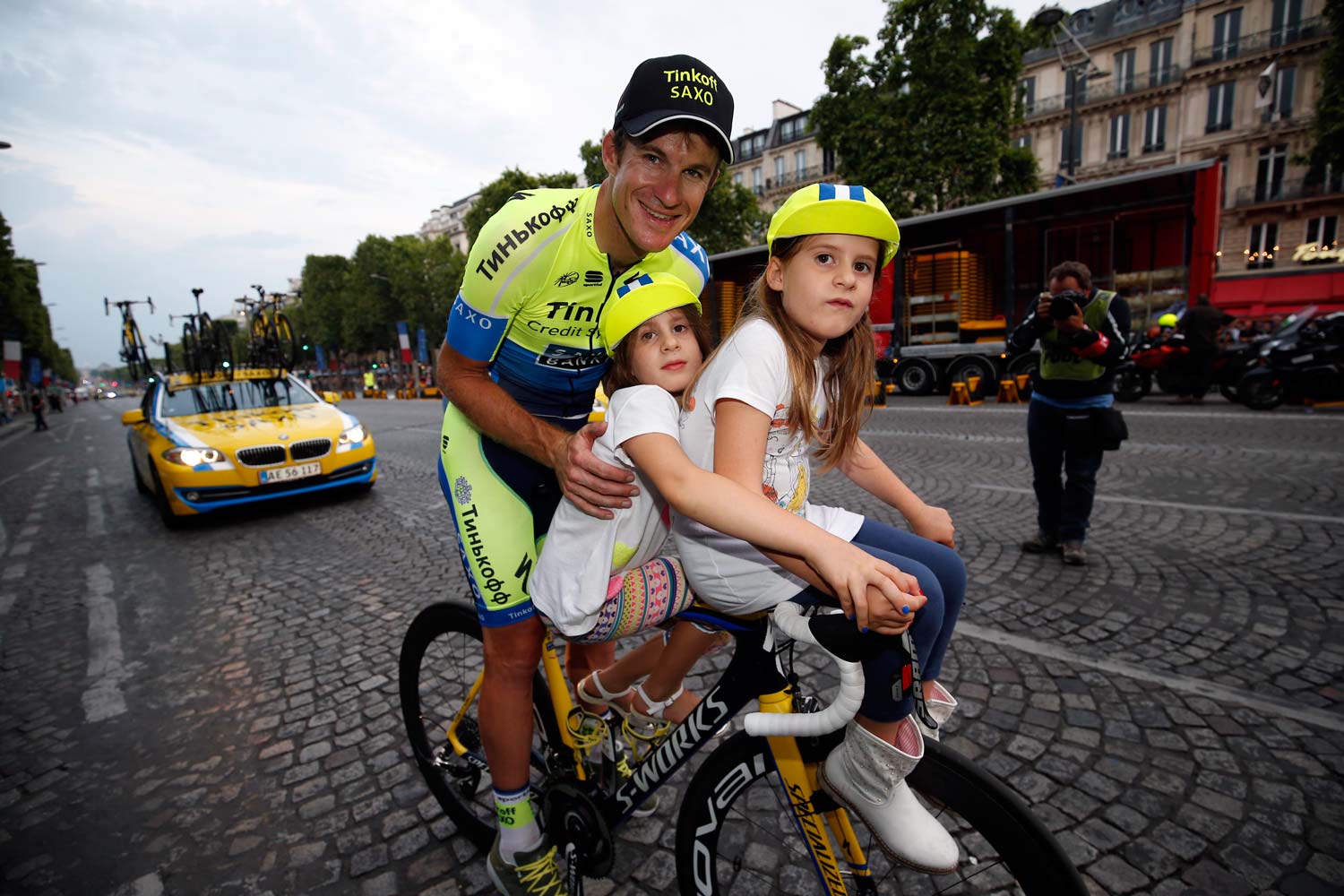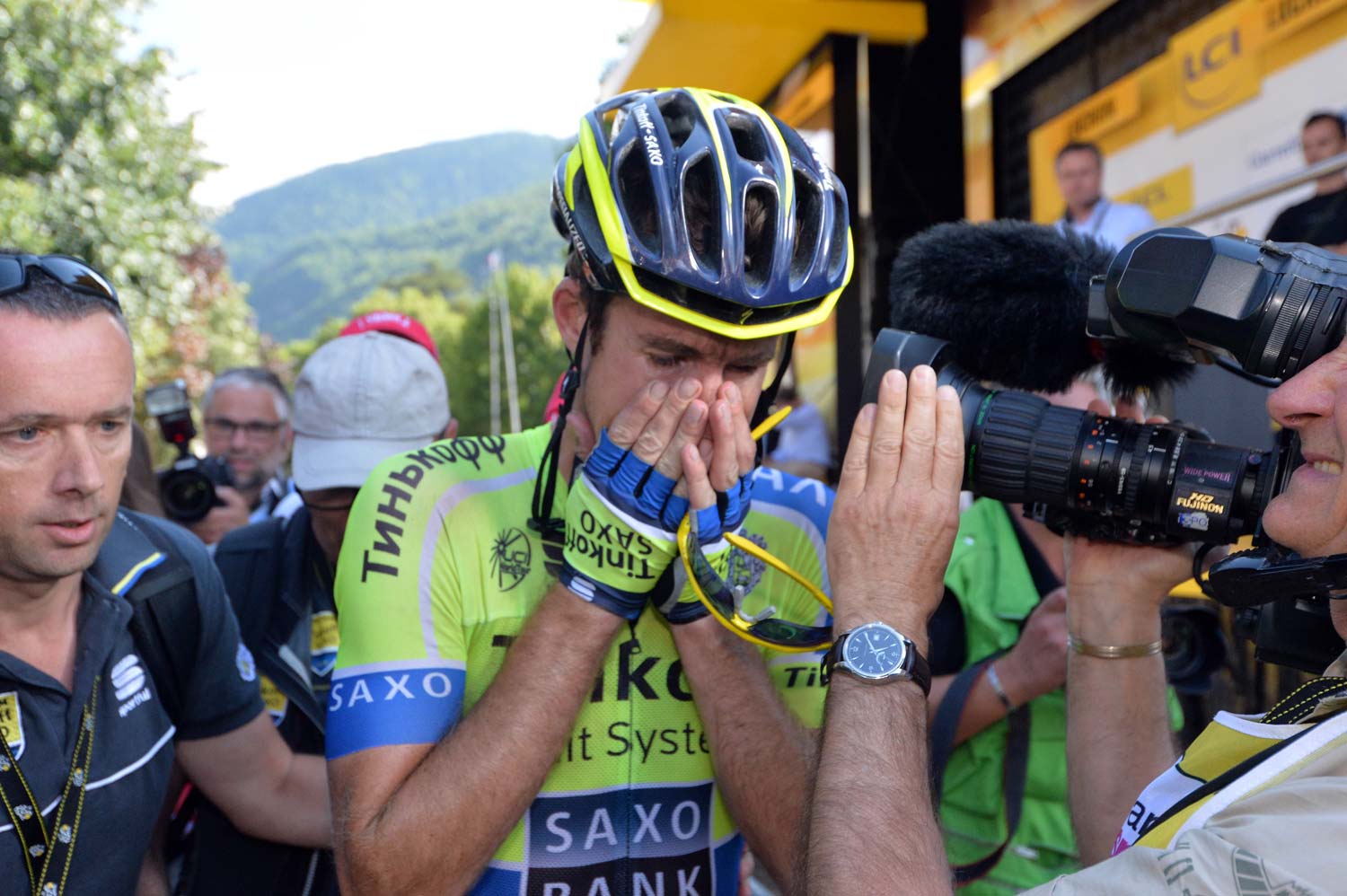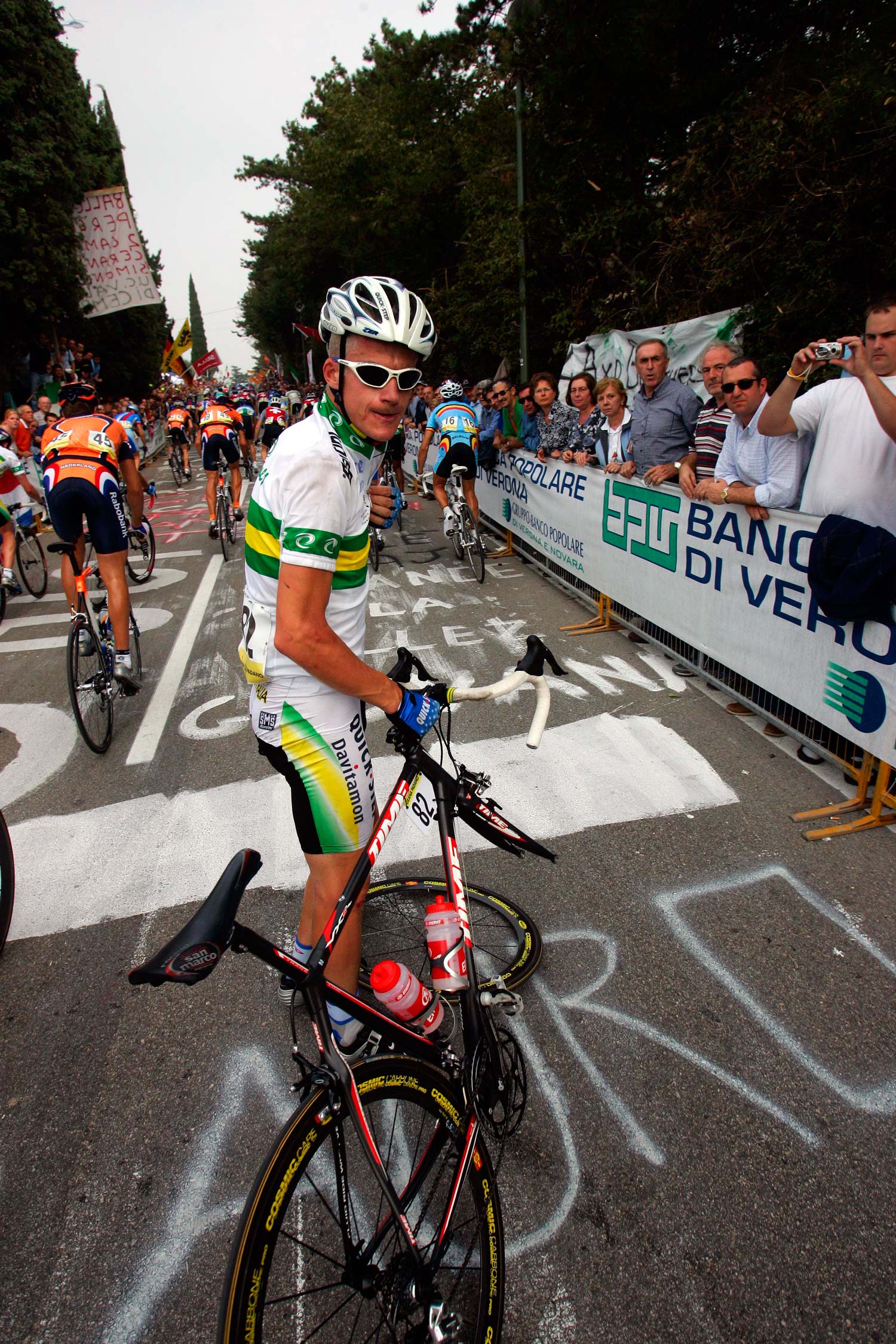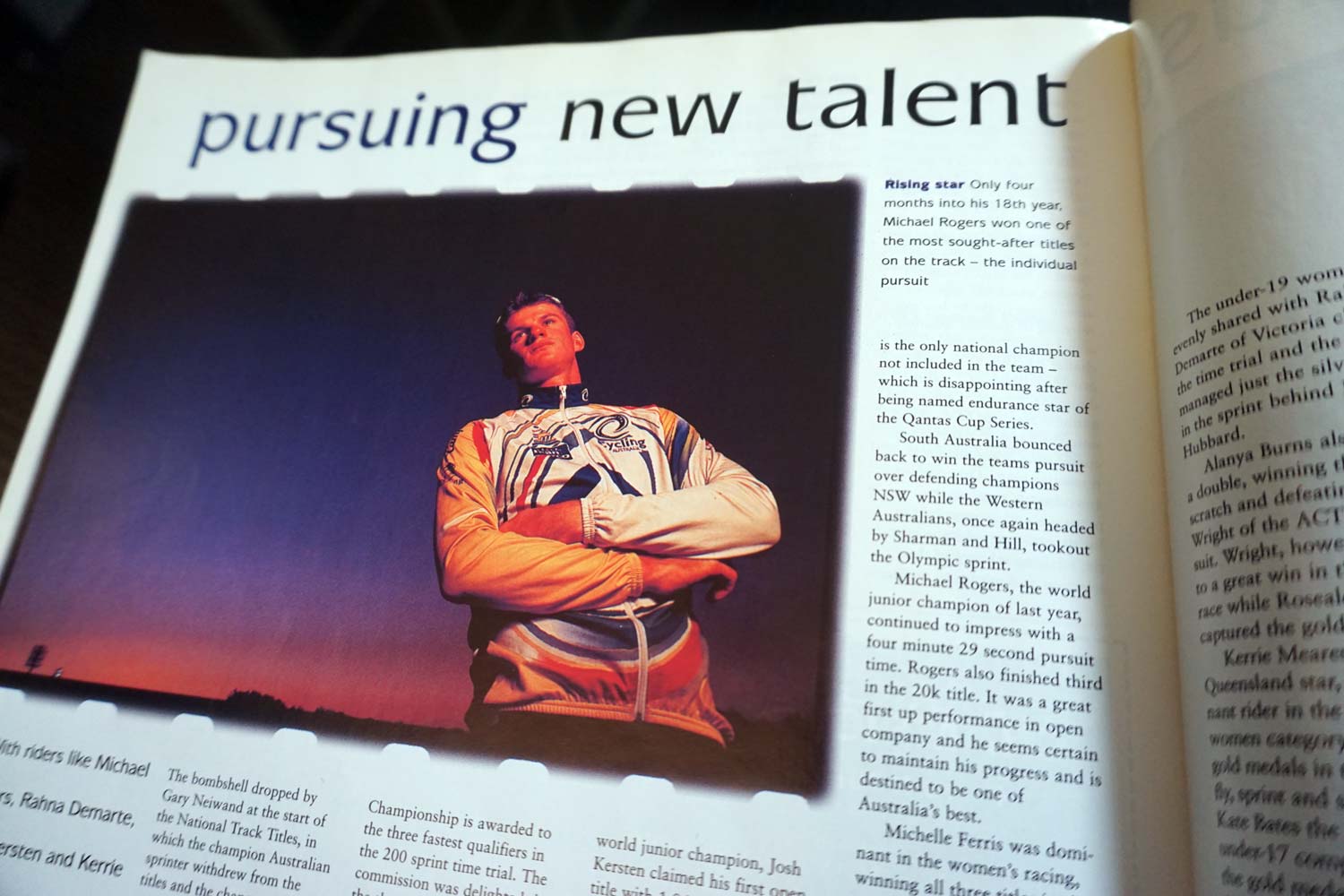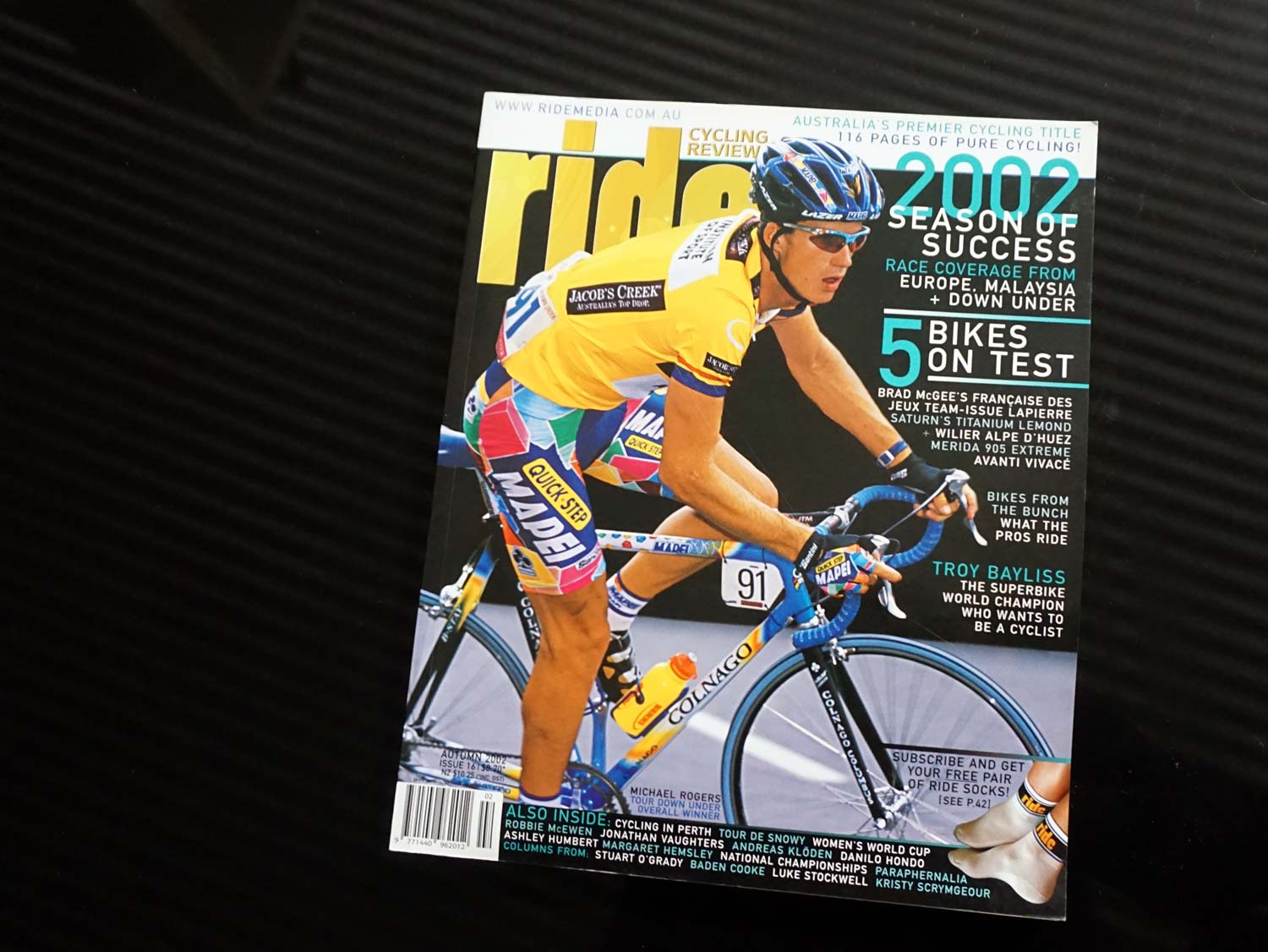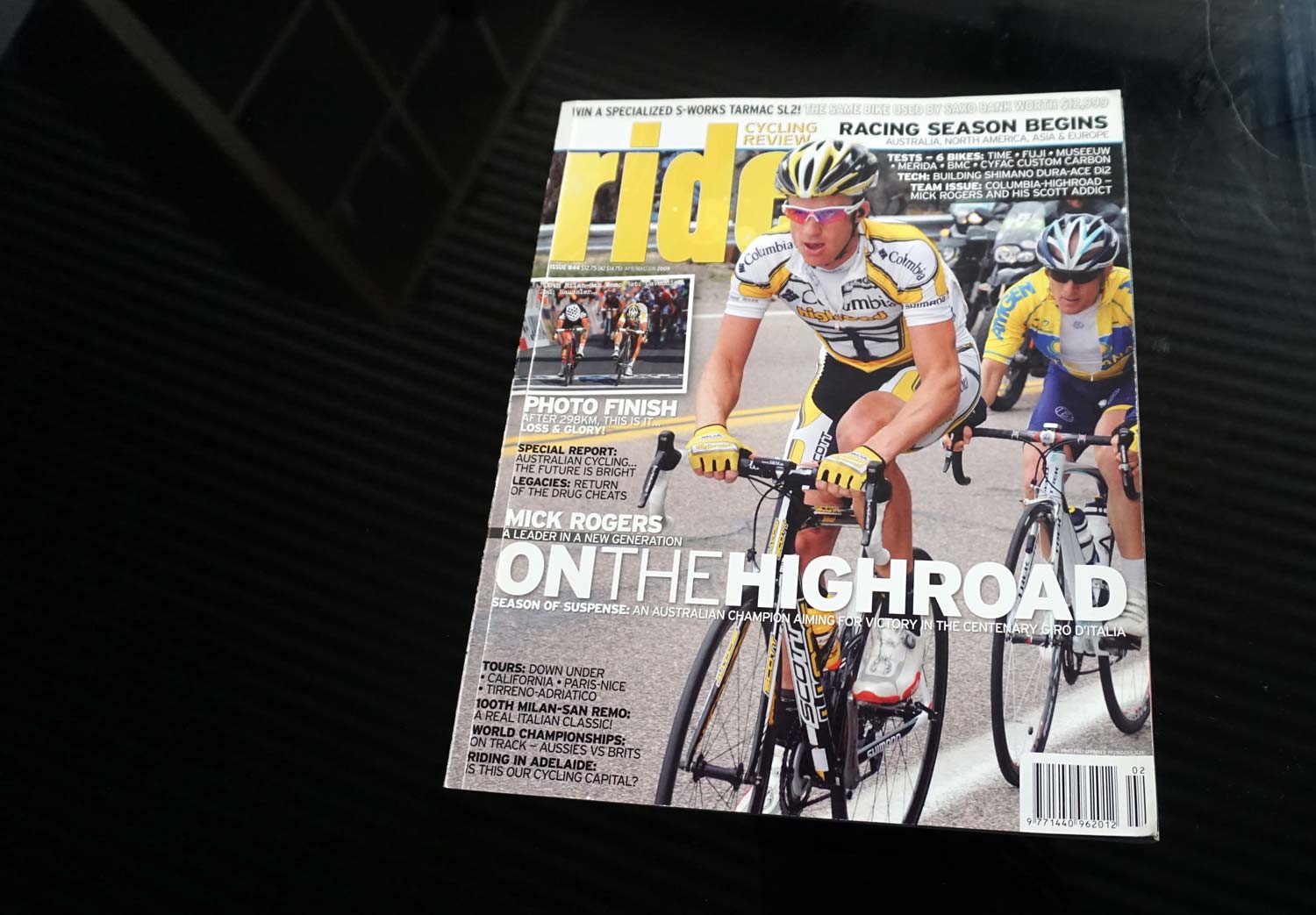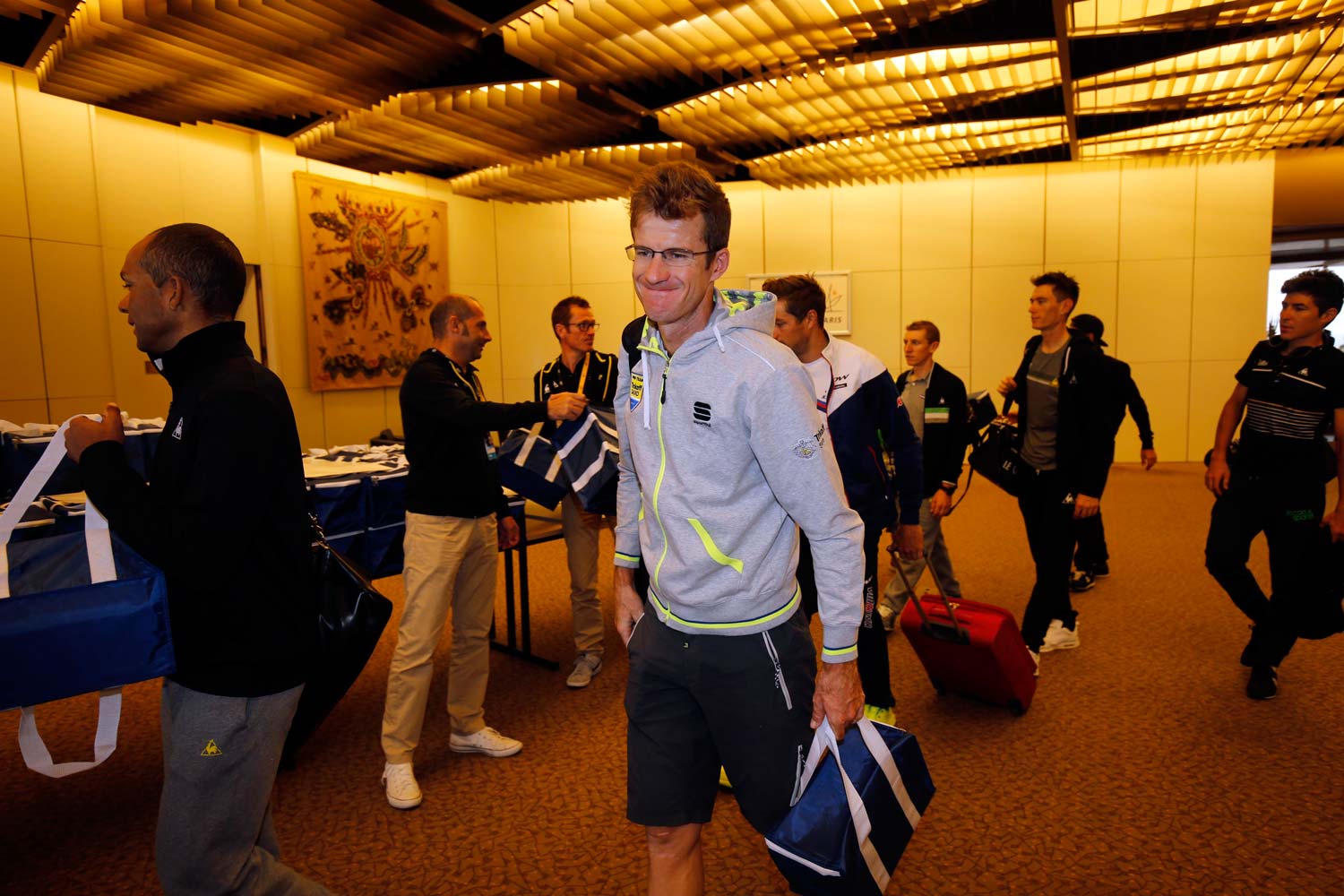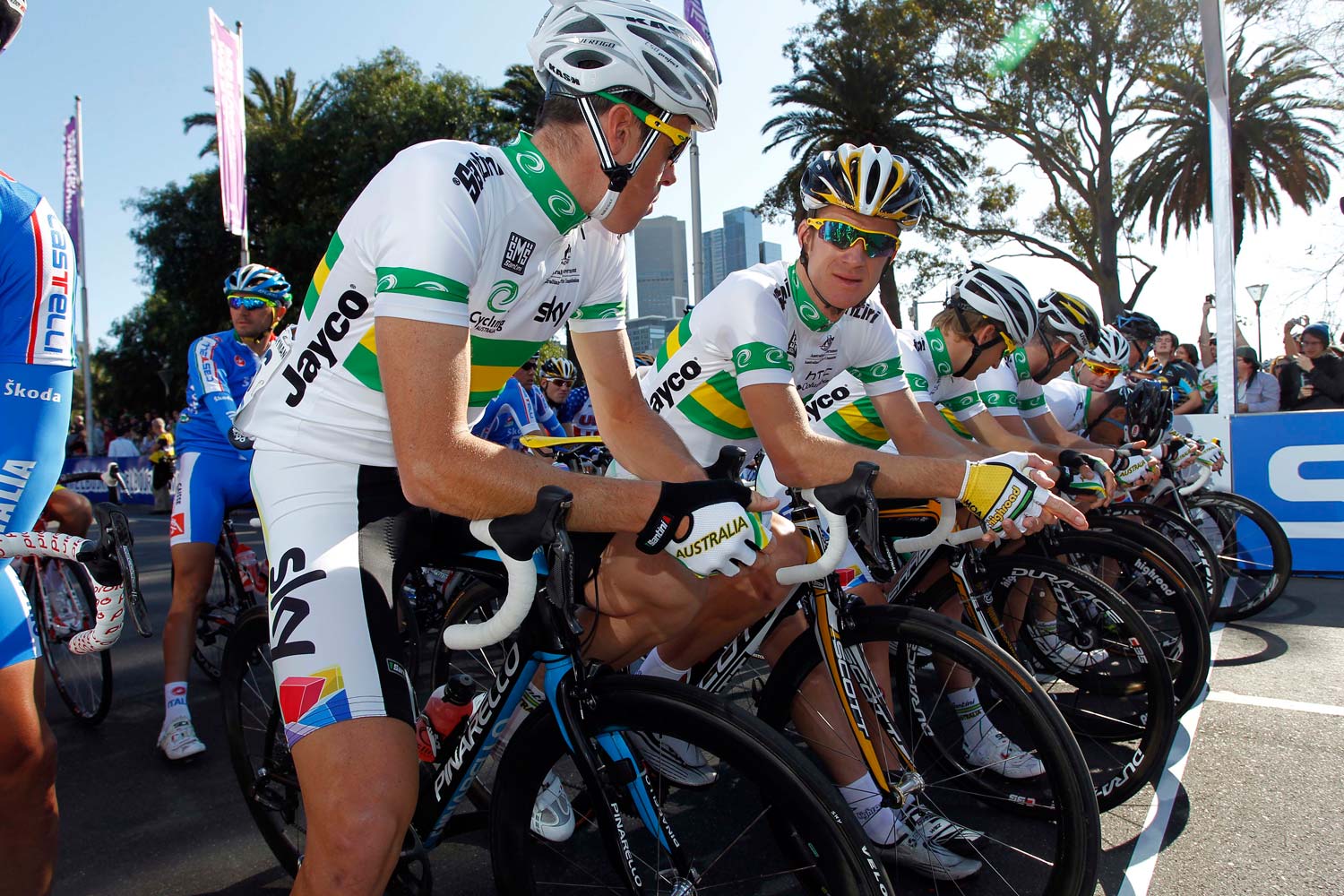The decision was not rushed and it is one that Michael Rogers wished he didn’t have to make but ultimately the call had to be made: stop racing. One of the true stars of Australian cycling has been forced to retire…
RIDE Media presents part one of a series about Mick Rogers.
– Photos: Yuzuru Sunada
Michael Rogers announces retirement, effective immediately
– By Rob Arnold
In romantic terms: Michael Rogers is leaving cycling with a broken heart. He will no longer race as a professional. He has announced his retirement, effective immediately, because of a cardiac condition. It’s nothing new, it was diagnosed at the start of his 16-year career as a professional cyclist. He’s managed it all along. But now he recognises it for what it is: a clear message to stop and negate risk of something terrible.
“Of course I would have loved to have seen it out on my own terms but I’m a realistic person. It is what it is.
“I’ve had a great career. If it had have happened when I was 24, it would have been a catastrophe. But I’m 36 now and I’ve won every race that I think I could have, considering the problem with my heart.”
He explains his condition and talks about his career in a series of exclusive interviews which we will publish on ridemedia.com.au in the coming days.
“If I didn’t have the problem with the heart, who knows? I might have been able to win a three-week stage race. I don’t know. And I never will know.
“But as a kid I set out to be a professional and if you had asked me, ‘Are you going to win these races? This race, this race, this race…? And do four Olympic Games?’ I would have laughed in their face. But time is a wonderful thing and slowly, slowly you can accomplish great things.”
It’s difficult to paraphrase the career of Rogers. As a racer he achieved a lot of personal success but his influence as a team-mate – a ‘road captain’ in his latter years – is pivotal in the greater script of ‘Mick Rogers, the athlete’. He would win three successive time trial world championships (the first retrospectively) and get an Olympic TT medal without ever having stepped on the podium at the Games. He crashed out of the Tour de France while the virtual leader midway through his career and saw out his racing days competing alongside superstars of his generation.
“A professional cyclist lives in a cocoon because it’s not a ‘job’ it’s a life choice.”
It was his tactical mind as much as his physical prowess that made him such a valuable ally for the likes of Bradley Wiggins, Chris Froome, Mark Cavendish, Alberto Contador and Peter Sagan. Rogers has helped all these riders win races.
Rogers has overcome significant setbacks and achieved great things.
He competed for the last time in the Dubai Tour in February and there’ll be no farewell race for Rogers. His body has told him how it must be. ‘Stop now’, is the demand. And he’s listening to his heart.
“I’ve decided, due to health reasons, to retire from competitive racing,” he explained before offering an overview of his heart condition.
“In 2001 I was diagnosed with a bicuspid aortic valve.
“I can explain it very quickly: the aortic valve closes in a three-leaf section. If you can imagine the Mercedes Benz logo, it kind of closes like that, in three ‘leaves’.
“I was born with a valve that closes in two, resulting in an imperfect closure of the valve so, obviously, in between heart beats when the valve closes it’s unable to close perfectly therefore a small amount of regurgitation of blood regurgitates back into the left ventricle of the heart.
“Once that blood builds up to a significant amount the heart is obliged to do an irregular beat to pump that blood that’s building up in the heart.
“They call that an extra systole – there’s a few names for them – and those can be considered dangerous if they get too numerous.”
He’s never suffered from any effects of his heart condition while racing and it could be that he would be able to race through to the end of 2016 without any ramifications. But, as the father of three young girls and a lifetime of memories already collected from his time as a cyclist, it’s simply not worth the risk.
“I’ve flown all around the world in the last couple of months and seen all the specialists… and there is a risk.
“Of course, I’m disappointed to miss my 13th Tour de France and having a chance at my fifth Olympic Games but I’ve had a good career and a long career.
“For 16 years I’ve been a professional and I’m not prepared to put my health at risk for six or seven months of what’s left of this season. I think that’s just common sense more than anything.”
* * * * *
The last time he won a race, he took a bow. It just so happens that that special victory salute in Luchon was his way of saying: ‘Thank you. And goodbye.’ But before then he’d race out the season. It was 2014 and he remembers it as the best moment of his racing career.
It was also the year of his comeback from the most upsetting incident to have happened to him as a professional athlete. He’d been charged with a doping offense and was suspended because of a positive test for clenbuterol. He was exonerated and raced again.
The second race of his return was the Giro d’Italia. He won stage 11 after launching a solo escape in the closing 20km: a pursuit ensued and he held off the peloton. Grand Tour victory number one! On the final Saturday he was in the break, climbing mountains, scaling the great Zoncolan… and he reached the line first. Stage win number two.
One more victory would follow. It is his fondest memory.
Can he look at a particular moment and think, ‘That was The Moment that was the best?’
“Oh that’s very simple. Yeah. It’s my stage win at the Tour.
“Growing up as a cyclist – and this is the way it was for me – the Tour was just The Race, wasn’t it? Or: isn’t it?
“I came close on a lot of occasions to winning stages. I finished second a couple of times. I finished third… I finished in the top 10, whatever. But for various reasons – I made a tactical error, there was someone just better than [me] on the day who beat me. And I think winning that race was just… it was the last race I won in my career.
“I knew from that point on that that was it.
“I kind of checked every box that I was capable of checking.”
* * * * *
It’s earlier than he’d hoped it would be but Rogers retires a happy man.
The consultation about his heart wasn’t a simple visit to the doctor and a shake of the head. He has made sure that stopping is because it’s the safest option, not because he’s had enough. The passion remains and, in the coming weeks, we’ll find out what the future holds for Michael Rogers.
For now he’s no longer a professional cyclist.
Throughout the years of publishing RIDE Cycling Review there has been one constant: regular appearances by Michael Rogers in photos and stories about the professional racing scene. That’s now come to an end.
* * * * *
Rogers appeared in RIDE #01, published in July 1998 with the headline: “Pursuing new talent”. He had won the individual pursuit at the national championships and appeared destined to eclipse the efforts of his two older brothers, Pete and Deane, who were both professional cyclists at the time.
In RIDE #02, he again graced the pages – this time as a multiple gold medallist from track events at the Commonwealth Games in Kuala Lumpur when he was just 19.
He has featured on the cover three times: in 2002 when he won the Tour Down Under; in 2005 when he claimed his third successive time trial world title; and again in 2009 after winning the Tour of California.
As the editor of a cycling magazine that was established at the same time Mick Rogers was becoming a professional cyclist, there have been many times when our paths have crossed. I have conducted numerous interviews with him and observed his development from enthusiastic young man, to elder statesman of the peloton. We have spoken often and generally the tone of our discussions is friendly but there have been times when frustration has been unleashed. Still, he has always been analytical, interesting, engaged and polite.
Regularly in the past 20 years have we shared stories: many about him and his antics as a cyclist but it wasn’t ever only about him. Rogers asked questions himself, wanting to know if business was going well, if RIDE Media was selling magazines, and other aspects of life. He is an intriguing person who has accomplished much as a rider but there’s a selflessness about him that is refreshing.
Pro cycling is one thing but it’s not the only thing.
That is, at least, the view he has as he exits the sport as a professional. When he was young, however, there was only one thing that mattered: becoming a pro cyclist!
“At the time,” he says of his teenage years, “I felt like I was put on earth to become a professional cyclist. It was my dream.”
* * * * *
There is a long list of features relating to Mick Rogers in the RIDE Media archives and the time has come to try and summarise them all.
A cardiac condition first diagnosed in 2001 has forced his hand: the plan was to retire at the end of his 17th season as a professional, instead he will stop competing early in 2016 with no chance of a farewell race.
When Rogers won his stage of the Tour de France two years ago, in spectacular style in Luchon, the review threw my mind into turmoil: how is it possible to consider the many elements that led him to that victory?
For all the personal success he’s enjoyed – and there have been plenty of victories over the years – he is arguably better known for his work as a domestique for some of the biggest names in cycling. In his formative years, he raced alongside the likes of Fabian Cancellara and Cadel Evans as a member of the Mapei under-23 team. And in the twilight of his career he was a crucial member of formidable teams that were dominating the Tour de France and Giro d’Italia.
The year after he helped Bradley Wiggins become the first Brit to win the Tour, Rogers transferred teams to join what was then called Saxo-Tinkoff, competing alongside another superstar of his generation, Alberto Contador.
Although a health issue has forced him into an earlier than anticipated retirement, the main interruptions to his racing career weren’t because of his cardiac condition – something that has limited his competition days in recent months. Rather it was Epstein-Barr virus that hindered him the most, twice being forced off the bike for months at a time to recover.
There was, however, an even longer enforced hiatus from racing and it came at a critical time in his career. A victory in the Japan Cup in October 2013 led him to submit a urine sample for one of the hundreds of doping controls he was subjected to over the years. It showed traces of clenbuterol and he was suspended, first by the UCI, then by his team.
He received the news at the end of the season, on 18 December, two days before he turned 34.
On 24 April 2014 he had been exonerated. He missed four months of competition. But otherwise, it was back to business as usual.
“Over the past four months, my family and I have endured a very difficult time,” he said after being cleared of any wrongdoing. “The UCI’s decision means I can return to racing immediately, and I am looking forward to getting back to work, competing in the sport I love.”
His retirement announcement comes 20 years and a week after he won his first national championship, the under-19 time trial on 17 April 1996. In that race the course in Calga just north of Sydney, he covered 25km in 33:35, an average of 44.6km/h. In second place, at 1:36, was another rider from Canberra who would go on to enjoy a long-standing career as a professional cyclist, Mathew Hayman.
In time we’ll find out what the future holds for Rogers, the father of three girls – Matilda, Sofia (8) and Emily (5) – and husband of Alessia. Chances are, he’ll be based in Europe for this is where he has spent most of his life. He speaks Italian like a native and has lived in Mendrisio for several years.
He met Alessia when she worked for the Mapei training centre near Varese in northern Italy and they are considering their options in a life that, for the first time in their lives, racing bikes will no longer pay the bills.
We will explore the topic of Michael Rogers’ retirement in some exclusive interviews which will be posted in the coming days.
There are many themes explored and a wealth of stories told about his days as a professional cyclist and it’s most interesting discussion. Stay tuned. The career is over but the stories are still being told.
– By Rob Arnold
Related links:
2012:
• 2nd in Criterium du Dauphiné
2013:
• Riding for Alberto Contador (Tour de France)
• Splitting the peloton: stage 13 (Tour de France)
2014:
• Cleared of clenbuterol charge
• Returning to racing after suspension
• Preparing for the Giro d’Italia
• Rogers’ first Giro d’Italia stage win
• Ready to return to the Tour de France
• Talking Contador crashing out of the Tour de France
2015:
• Rogers and Basso’s testicular cancer news
* * * * *


